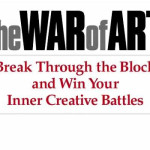I’ve noticed something about the staying power of movies in my 36 years of living. The movies we’ll most likely be watching say 10 or 15 years from now are the ones that aren’t overly trendy or fashionable. By this I mean The movies that we love and will continue to love appear to have a timeless feel. It’s particularly historic films which blend modern trends with historic style and dress which lift themselves outside of time.
Although a very short book, 119 pages, Prophetic Untimeliness packs a very powerful punch. Os Guinness calls the Church to bear the offense of the Gospel and walk out of step with the temporary trends of our times. “To always be relevant,” He says, “you have to say things that at are eternal.”
Its difficult but Guinness offers three ways we can learn.
Develop an awareness of the unfashionable. Its easy to preach the “good news” it’s quite another to preach the bad. The heart of the Gospel is hostel to our carnal nature. Yes there are doctrines and beliefs that we are comfortable with but there are also doctrines and beliefs which offend us. We must seek balance messages of condemnation/confrontation with comfort/consolation.
Cultivate an appreciation for the historical. Nothing can confront our modern perspectives like a healthy dose of history. For our American Church living a life of luxury in this modern age it has become a popular belief that God will not allow the righteous to suffer. By cultivating an appreciation the historical we are confronted by this modern distortion. A good way to gain an historical perspective is by reading old books.
Pay constant attention to the eternal. This may seem as difficult as asking a fish to think of a world outside the water, but its not. We as Christians recognize that God’s word is eternal. The same word that spoke the worlds into existence is the same word that sustains the world today. That same Word has been given to us in the Bible. I can hear my audience groaning even now. “The bible is old news, we want something new.” But let us remember that today’s new is tomorrow’s old. Only by interacting with God’s word can we interact with the eternally relevant.
John Piper says of C. S. Lewis’ appeal
Lewis’s unwavering commitment to what is True and Real and Valuable, as opposed to what is trendy or fashionable or current, has been another kind of liberation for me, namely, from “chronological snobbery.” He loved the wisdom of the ages, not the whimsy of the passing present. He called himself a Neanderthaler and a dinosaur.
He didn’t read newspapers.
He never wore a watch.
He never learned to type.
He did not own or drive a car.
He cared nothing about cutting a good appearance and wore the same old clothes until they were threadbare.
He was incredibly free from the addicting powers of the present moment.
The effect of this on me has been to make me wary of what he called “chronological snobbery.” That is, he has shown me that “newness” is no virtue, and “oldness” is no fault. He considered the present time to be provincial with its own blind spots. He said once: every third book you read should be from outside your own (provincial) century. Truth and beauty and goodness are not determined by when they exist. Nothing is inferior for being old, and nothing is valuable for being modern. This has freed me from the tyranny of novelty and opened for me the wisdom of the centuries.
Originally published February 11, 2006.
















